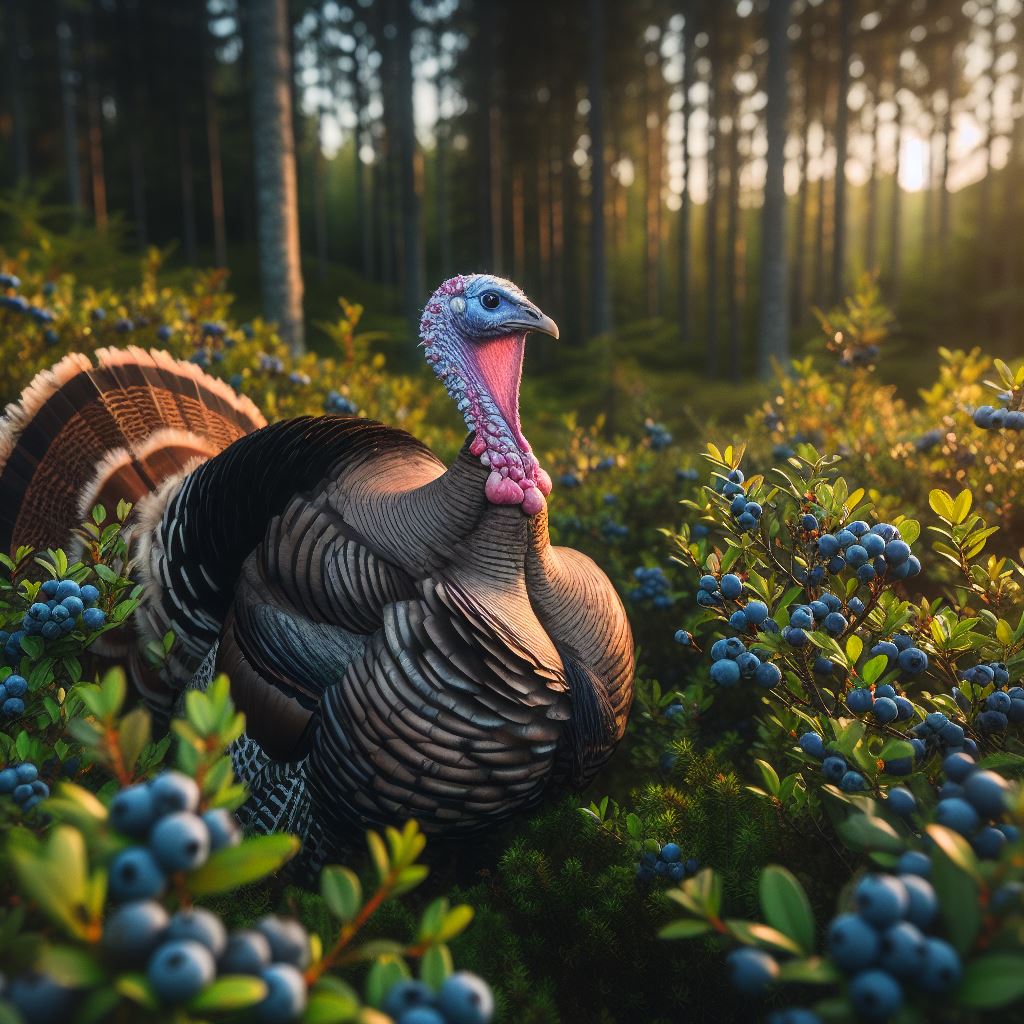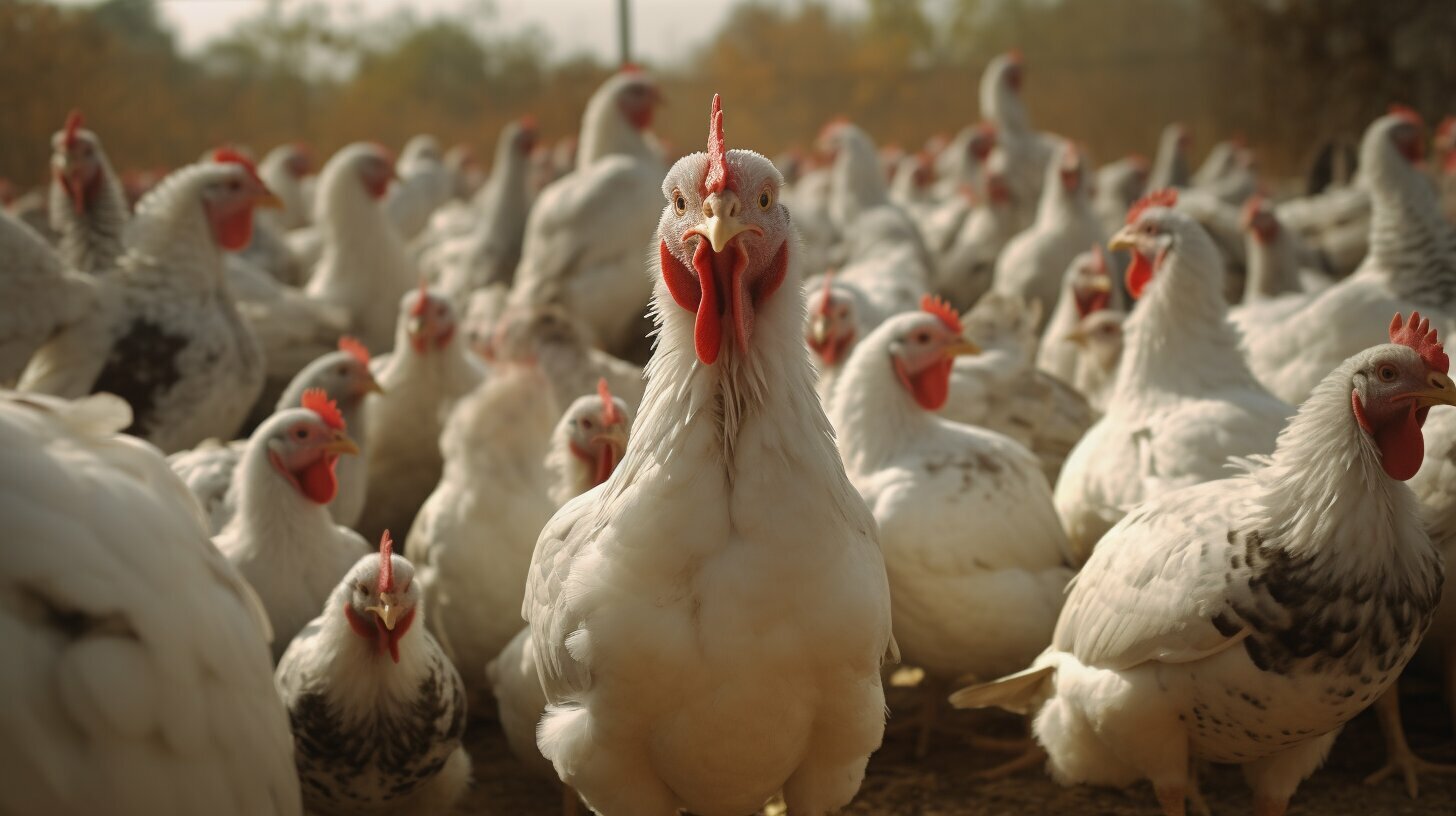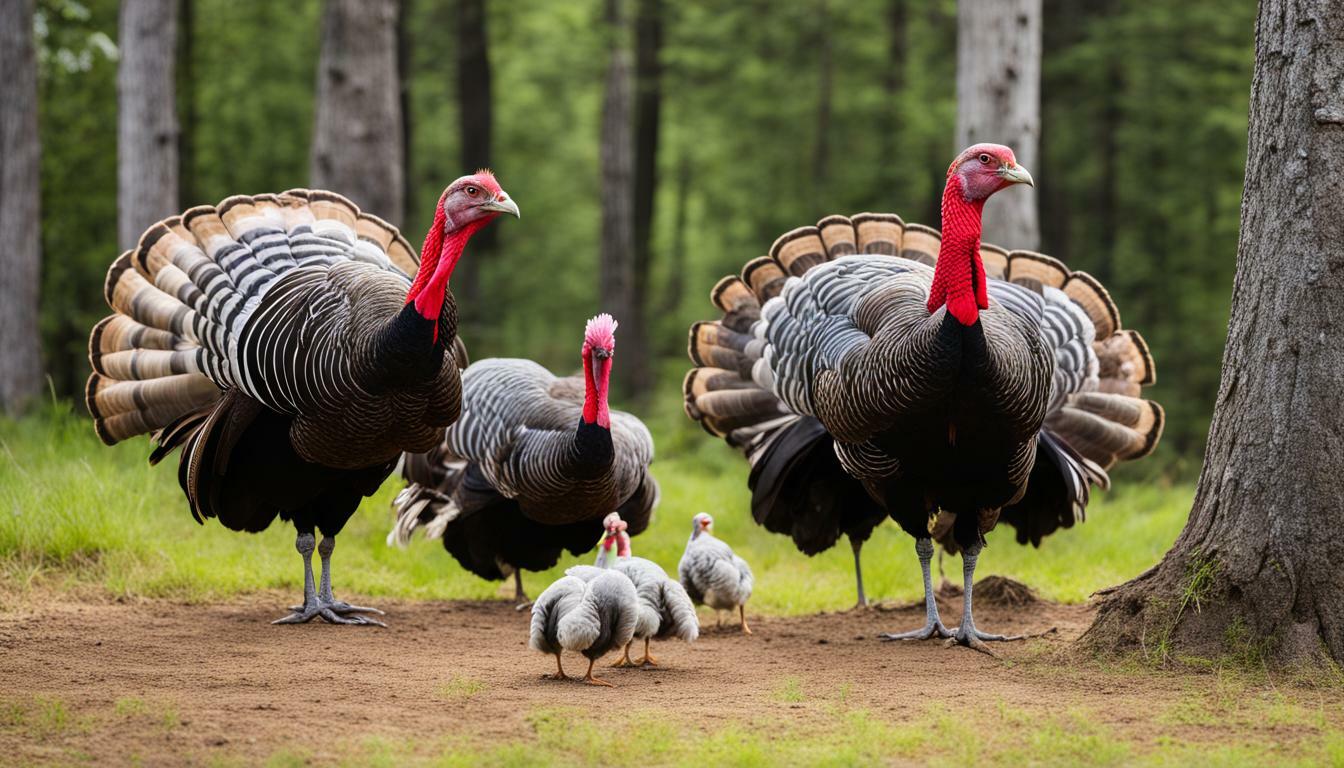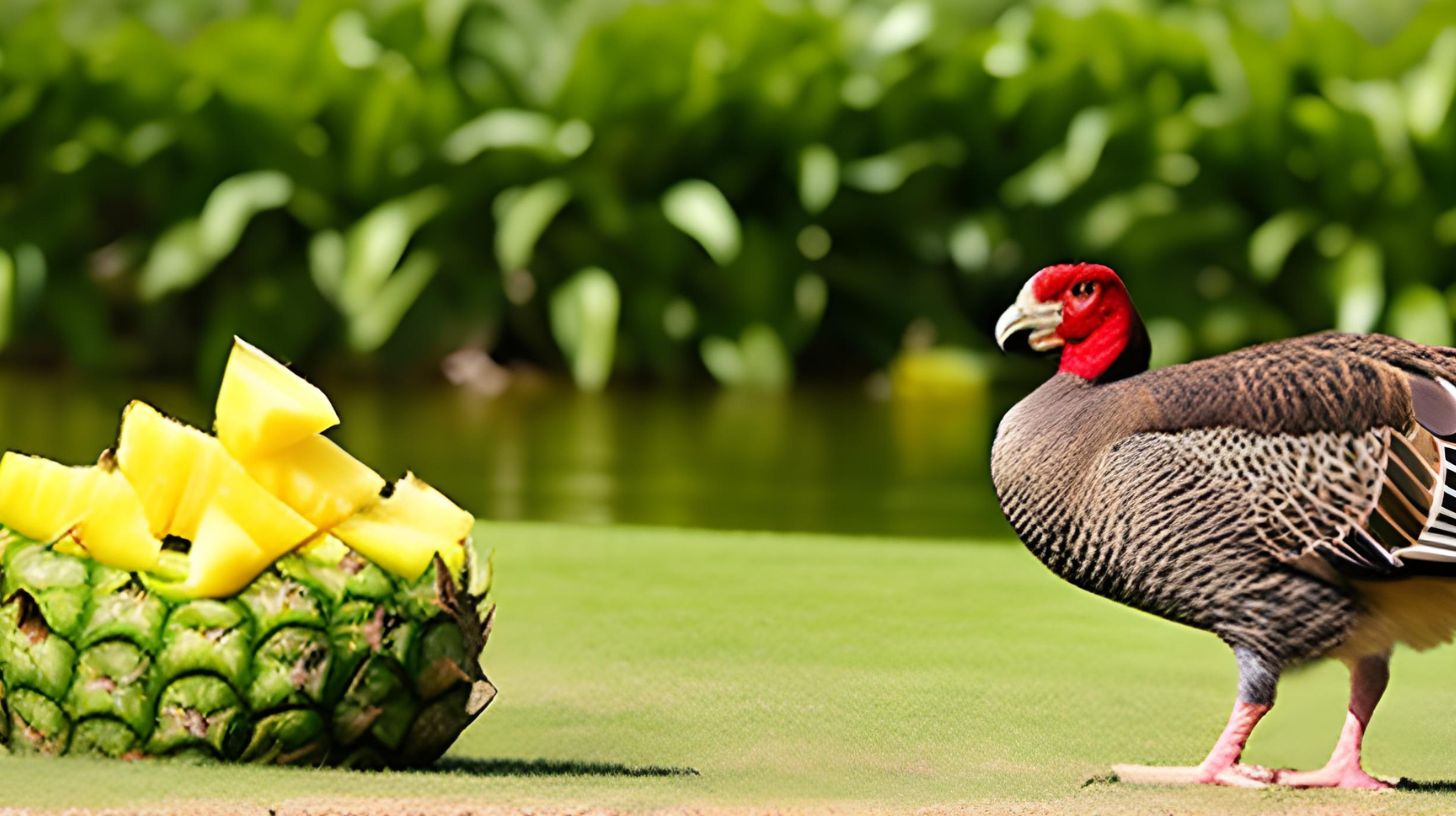Can Turkeys Eat Tomatoes? Discover the Answer Here!

Table of content:
- Potential Issues with Tomatoes for Turkeys
- Benefits of Tomatoes for Turkeys
- How Many Tomatoes Can Turkeys Eat?
- Can Turkeys Eat All Parts of a Tomato Plant?
- Ideal Ways to Feed Tomatoes to Turkeys
- Can Wild Turkeys Eat Tomatoes?
- Can Turkey Poults Eat Tomatoes?
- What If My Turkeys Eat Too Many Tomatoes?
- Are Tomatoes Bad for Turkeys Overall?
- Final Thoughts
The short answer is yes, turkeys can safely eat tomatoes in moderation as part of a balanced diet. Both domesticated and wild turkeys will eat ripe tomatoes readily when given access to them. Cherry tomatoes or grape tomatoes are a good size for turkeys to eat whole. Larger slicing tomatoes can be chopped for turkeys to eat easily.
Tomatoes offer some nutritional benefits for turkeys. This bright red fruit is packed with vitamin C, vitamin A, vitamin B6, potassium, folate and other antioxidants. The main concern with feeding tomatoes to turkeys is the acidic nature of tomatoes.
Potential Issues with Tomatoes for Turkeys
While tomatoes themselves are not toxic or harmful to turkeys, their acidic content can cause problems if turkeys eat too many. Here are some potential issues to be aware of when feeding tomatoes to your flock:
- Digestive upset – Too many tomatoes could potentially cause diarrhea or upset stomach in turkeys due to the citric and malic acid content. Moderation is key.
- Thiamine deficiency – The acids in tomatoes may interfere with a turkey’s ability to absorb thiamine, an essential B vitamin. Lack of thiamine can cause neurological issues.
- Crop impaction – Tomatoes have seeds and skins that may not fully digest. Too much tomato matter could potentially impact a turkey’s crop.
- Respiratory issues – Some poultry keepers note increased mucus production in turkeys after eating tomatoes. Tomatoes may irritate the respiratory tract.
To avoid issues, tomatoes should be fed in moderation as part of a varied diet. Chopping or crushing tomatoes helps reduce crop impaction risk. Avoid feeding turkeys only tomatoes or large quantities at once.
Benefits of Tomatoes for Turkeys
When fed responsibly, tomatoes can provide some benefits for turkeys beyond basic nutrition:
- Vitamin C – Tomatoes are an excellent source of immune-boosting vitamin C. This supports turkey health.
- Lycopene – Tomatoes contain this antioxidant carotenoid pigment. It acts as an anti-inflammatory.
- Flavor – Turkeys enjoy the taste of ripe tomatoes as a treat food. This provides enrichment.
- Hydration – The high water content in tomatoes helps keep turkeys hydrated.
- Electrolytes – Tomatoes contain electrolytes like potassium that support nerve and muscle function.
The nutritional value of tomatoes supports the health, development, egg production and overall wellbeing of turkeys when offered in moderation.
How Many Tomatoes Can Turkeys Eat?
There is no definitive number of tomatoes a turkey can eat per day. Tomato intake should be monitored based on the size and overall diet of your turkey. Here are some general tomato feeding guidelines for turkeys:
- Small turkeys – About 2-3 cherry tomatoes per 2-3 pound turkey daily
- Medium turkeys – Around 5-6 cherry tomatoes or 1/2 large tomato per day
- Large turkeys – No more than 1 large tomato daily
- Free range – Scatter small amounts to free ranging turkeys to prevent overconsumption
- Treats – Use tomatoes in moderation as occasional treats, not everyday feed
Remember tomatoes should make up only a small portion of a balanced turkey diet. Avoid sudden large quantities of tomatoes. Introduce them slowly while monitoring turkey health.
Can Turkeys Eat All Parts of a Tomato Plant?
When it comes to tomato plants, turkeys can safely eat ripe tomatoes only. Avoid letting your flock consume:
- Tomato foliage and vines – These contain toxic alkaloids. Do not offer turkey’s access.
- Unripe green tomatoes – Unripe tomatoes contain higher acid levels and may cause crop impaction.
- Rotten tomatoes – These harbor potentially harmful bacteria and mold.
- Tomato stems – The fibrous stems are a choking hazard for turkeys. Remove before feeding tomatoes.
While tomato fruits are fair game, keep turkeys away from all other tomato plant parts to prevent toxicity issues. Fence off tomato gardens from free ranging turkeys.
Ideal Ways to Feed Tomatoes to Turkeys
Here are some tips for offering tomatoes to your flock safely and effectively:
- Chop or crush tomatoes before feeding to reduce choking hazards and crop impaction risk.
- Mix smaller pieces of tomato into turkey feed rations or treats. Avoid standalone tomato meals.
- Introduce tomato treats slowly to gauge your flock’s tolerance.
- Offer tomatoes as periodic treats a few times a week rather than daily.
- Provide tomatoes as supplemental snacks between meals, not large tomato-only meals.
- Make sure plenty of fresh water is available at all times to dilute acidic tomato content.
- Avoid sudden large amounts of tomatoes. Stick to recommended portion sizes.
- Monitor turkeys after eating tomatoes for any signs of digestive upset.
- Remove any uneaten tomato remains promptly to prevent spoilage.
Following these tips will provide your turkeys with nutritional variety while avoiding potential tomato-related issues. Adjust quantities based on your turkeys’ size and response.
Can Wild Turkeys Eat Tomatoes?
Wild turkeys are opportunistic omnivores and will eat tomatoes readily when given the chance. Tomatoes grow wild in many areas, particularly in old homesteads and abandoned farms where wild turkeys forage.
While wild turkeys have less regulated diets than domestic flocks, tomatoes should still only make up a small portion of their diverse foraging. Issues like digestive upset and crop impaction can occur in overenthusiastic wild turkeys enjoying backyard tomato gardens.
In most cases, wild turkeys regulate their own tomato consumption based on availability and eat moderate amounts. Supplemental feeding is not necessary for wild turkeys’ survival. But they may help themselves to any garden tomatoes they can access!
Can Turkey Poults Eat Tomatoes?
Turkey poults are young turkeys under 4 weeks old. Early turkey development requires high protein feed for growth. Commercial turkey starter feeds are formulated to meet poults’ needs.
Tomatoes are not an ideal primary feed source for vulnerable poults. The acidic tomatoes may irritate underdeveloped digestive systems. However, poults may start picking at tomatoes in their environment by 2-3 weeks old.
Small amounts of chopped ripe tomatoes can be offered to supplement starter feeds starting around the 3 week mark. Just a few bits per poult daily is plenty. Wait until poults are fully feathered and active before providing tomato treats. Never offer tomatoes to poults under 2 weeks old.
What If My Turkeys Eat Too Many Tomatoes?
In the event your turkeys get into an unattended tomato patch and overindulge, take these steps:
- Monitor for signs of digestive upset like diarrhea, lethargy or loss of appetite. Call your vet if severe.
- Provide extra hydration and electrolytes to counteract acidic tomato content. Offer lettuces, cucumbers, melon and plenty of fresh water.
- Withhold tomatoes completely for a few days to allow their systems to reset.
- Feed a bland poultry mash to give their digestive tract a rest.
- Watch for crop impaction indicated by a swollen crop, difficulty swallowing or vomiting. This requires veterinary treatment.
- Ensure turkeys recover fully before reintroducing tomatoes in strict moderation again.
Prevention is ideal – keep tomatoes out of reach and stick to recommended portions. But even with an overindulgent turkey, side effects are usually temporary with proper care.
Are Tomatoes Bad for Turkeys Overall?
Overall tomatoes are not harmful, toxic or unsafe food items for turkeys. When fed responsibly in moderation, tomatoes can provide nutritional variety and enrichment. Issues only arise if turkeys overindulge.
The main risks – digestive upset, vitamin deficiency, and crop impaction – can all be avoided through portion control and diet modulation. Do not eliminate tomatoes entirely. Simply use prudence in how often and how much you feed.
Turkeys enjoy tomatoes as an occasional treat. With some common sense precautions, you can safely incorporate modest tomato supplementation into your flock’s diet. Keep an eye on their health, restrict access to plants, and offer chopped ripe tomatoes in limited quantities only.
Final Thoughts
Can turkeys eat tomatoes? Yes, when fed prudently both domestic and wild turkeys can enjoy ripe tomatoes. While tomatoes offer some nutritional benefits, their acidic nature requires feeding them in moderation. Avoid overindulging turkeys to prevent issues like diarrhea, crop impaction and nutrient deficiencies. Overall, tomatoes make a fine supplemental addition to a balanced turkey diet when provided responsibly in limited quantities. Just be sure to monitor your flock’s health and restrict access to tomato plants. With some simple precautions, turkey keepers can safely treat their flocks to these garden favorites.
Welcome. I’m Adreena Shanum, the proud owner of this website, and I am incredibly passionate about animals, especially poultry. I founded adreenapets.com as a labor of love, stemming from my desire to share my knowledge and experiences with poultry enthusiasts worldwide.




